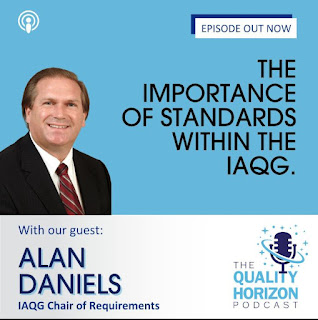I thought I was all done writing about the place of customer requirements in Quality, but last week I saw an article that put an interesting spin on the subject. Publishing in Fast Company, Anne Marie Squeo wrote, "Tesla owners didn’t buy a car: We bought a set of beliefs Elon is trashing." Of course my first thought was, Wait, I thought Teslas were cars. But then I read her article and began to see her point.
Fundamentally, Squeo is writing about branding; and she makes the point that a brand can have a value or weight of its own, independent of this or that product carrying the brand. And of course this is true. Brands can imply a lot, and those implications can often stretch far beyond the domain where the brand nominally lives. Squeo identifies a number of attitudes and beliefs that she finds common among Tesla-owners—attitudes and beliefs that have nothing to do with cars or even transportation per se, but which are so common that she sees them as clear elements of the Tesla brand. People who disagree strongly with these attitudes and beliefs, she adds, are really not likely ever to buy a Tesla.
By the same token, for example, when I was a kid Cadillac was a brand that implied the very best of everything, not just cars. If you were part of a group trying to fix a problem and someone said, "We don't need a Cadillac solution," he meant that the solution didn't have to be perfect so long as it was good enough. The implication was always that the "Cadillac solution" would indeed have everything you could ask for, but it would also be very expensive. And of course GM worked to reinforce that association in the mind of the public.
Critically, a brand can become a good in its own right, something that customers will pay for. Customers who bought a Cadillac expected it to be expensive, and would have scorned it if it weren't; because in fact the very expense—and the social cachet they hoped to acquire by being able to afford it—was part of what they wanted out of the car.
One consequence, though, is that if the brand has a value all its own then you have to take care of it. Recognize that the integrity of your brand is part of the value proposition that you offer your customers*, and build guardrails in your Quality Management System to keep it intact. In an earlier post, I described how the Bosch corporation responds with swift and visible action to violations of the Bosch Code of Business Conduct or the principle of legality; and Bosch responds this way in part because a reputation for ethical and legal business behavior is a fundamental component of the Bosch brand. The company literally cannot afford to let violations slide if there is any risk that the brand might be sullied.
The alternative is that you can make a conscious decision not to bother. This is the situation that I discussed four weeks ago with respect to Boeing. Boeing has chosen to use a certain amount of its institutional weight to push the spread of the AS9100 aerospace quality management system standard, but has not chosen to get a third-party certification of their own. In the abstract, this decision might be construed as a risk to the brand, because it generates confusion: Which is it? Do you support AS9100, or don't you? That precise point is the subject of Chris Paris's criticisms of Boeing, as I described in the earlier post. What allows Boeing to make the decision they have made is a calculation that the risk to their brand doesn't mean much risk to their business, since there is only one other company on the planet (Airbus) which constitutes any kind of credible competition.
In short: once your brand acquires a value in its own right, you have to take account of it. Either put measures in place to protect your brand, or make a conscious decision not to bother. What you cannot afford to do is to ignore the question, and to treat your brand inconsistently by accident.
It is interesting that, in the rest of Squeo's article, this is exactly what she accuses Elon Musk of doing. She argues, that is, that Musk's actions since buying Twitter harm the brand identity she had earlier described for Tesla, and that he seems to be causing this damage negligently, as if unaware that there is any issue. I have no idea what's going on in the mind of Elon Musk, so I have to recuse myself from that part of the discussion. I always think it is worthwhile to check out alternative hypotheses—maybe Musk is pivoting on purpose from one brand identity to another, rather than doing anything by accident—but it is always possible that Squeo has it exactly right. Perhaps Musk is genuinely unaware that the Tesla brand has (or had) a value independent of the specific cars sold with that logo, so that he failed to implement any safeguards (including restrictions on himself) to protect that value.
But if that's what is happening, don't try this at home. If your brand has an independent value, take care of it.
__________
* For example, during your Context of the Organization (COTO) analysis. You can consider it along with other non-product requirements, as discussed here.









